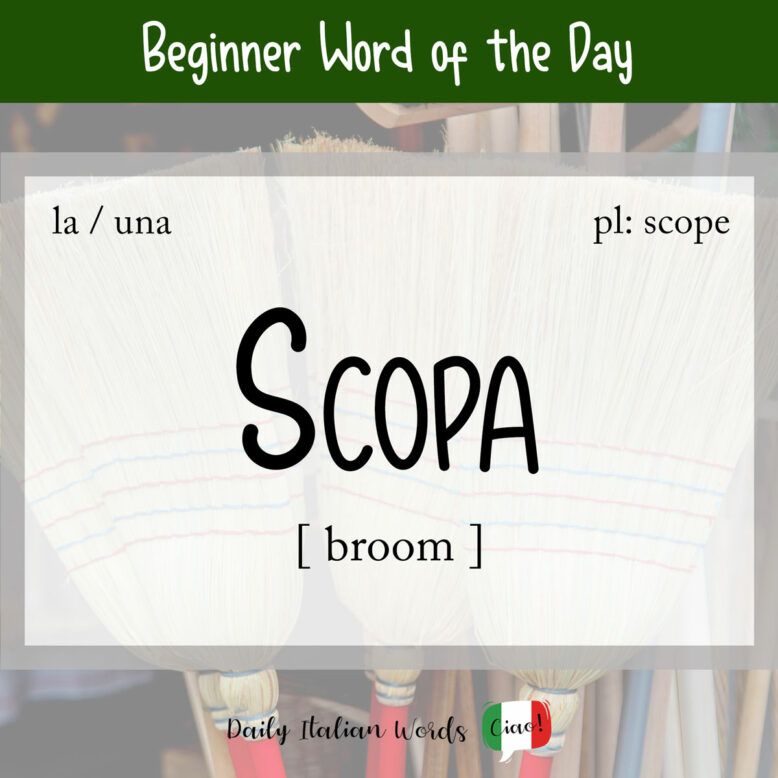Scopa is the word for broom in Italian. It is a feminine noun that comes from the Latin scopae meaning twigs.

The definite and indefinite articles you need to use with this word are as follows:
- la scopa = the broom
- le scope = the brooms
- una scopa = a broom
- (delle) scope = (some) brooms
La strega vola sulla sua scopa.
The witch flies on her broom.
Here are some verbs that often appear in the company of scopa:
- raccogliere (qualcosa) con la scopa = to sweep up (something) with the broom
- passare la scopa = to sweep
Scopa e paletta is the word for a brush and pan in Italian. And manico di scopa, in addition to meaning broom handle or broomstick, can also be a figurative reference to someone who is overly rigid.
A household cleaning item most people own is a scopa elettrica, which is the word for an electric broom.

Scopa is also the name given to a famous card game in Italy. It is one of three national card games, along with Briscola and Tresette. The reason it is called “broom” is because the game involves the act of “sweeping” the cards off of the table in order to earn extra points. The expression fare scopa means “to win at scopa“. Below you can learn how to play this classic card game:
And while we’re talking about other meanings for scopa, we might as well mention that it is also the third-person singular of the verb scopare, which in addition to meaning “to sweep“, is also the Italian equivalent of the f-bomb when used as a verb.
Expressions featuring the word “scopa”
Aver mangiato / ingoiato il manico della scopa
Literal translation: to have eaten / swallowed the broom handle
English meaning: said of someone who walks in an upright or stiff manner
Magro come una scopa
Literal translation: as thin as a broom
English meaning: as thin as a stick
Scopa nuova spazza bene tre giorni
Literal translation: a new broom sweeps well for three days
English meaning: those who take on a task or job are zealous only at the beginning
Heather Broster is a graduate with honours in linguistics from the University of Western Ontario. She is an aspiring polyglot, proficient in English and Italian, as well as Japanese, Welsh, and French to varying degrees of fluency. Originally from Toronto, Heather has resided in various countries, notably Italy for a period of six years. Her primary focus lies in the fields of language acquisition, education, and bilingual instruction.


